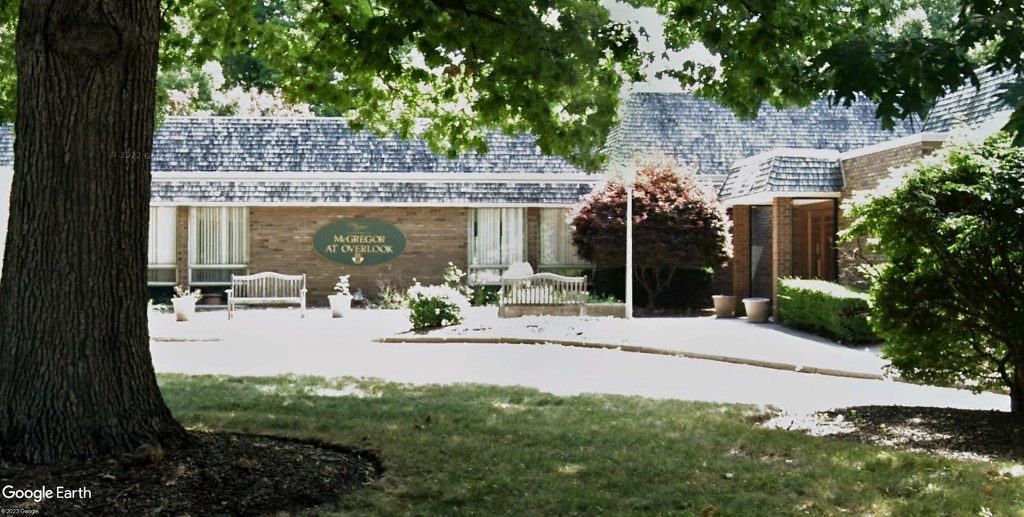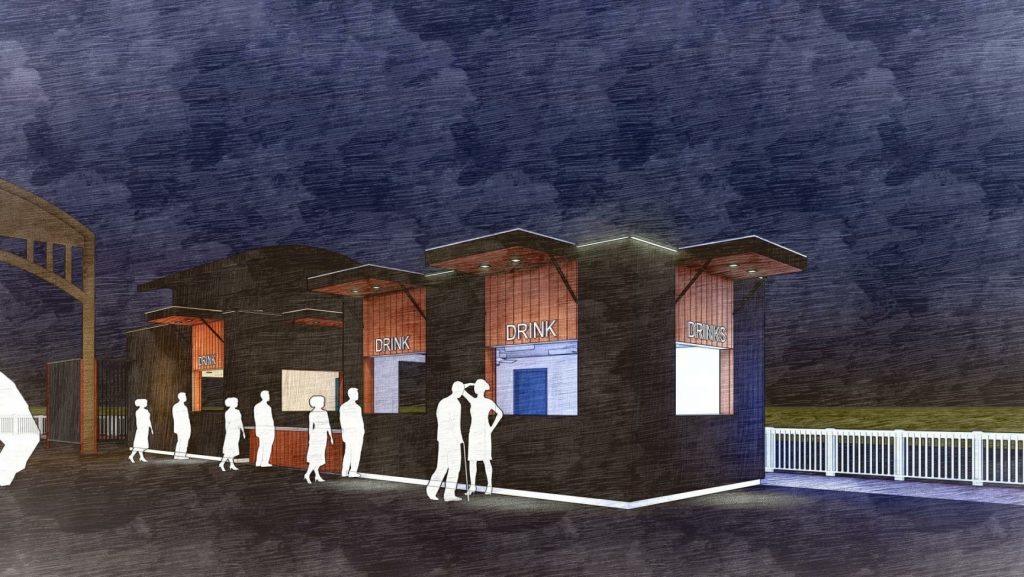200 Public Square has the space, but the prestige?
Three years ago, when Cleveland-Cliffs made some big moves, NEOtrans asked the question. Three years later, we’re asking it again. If Cliffs is able to acquire rival United States Steel (USS), as recently proposed, what impact might this have on the combined company’s headquarters situation?
NEOtrans asked local real estate insiders for their thoughts and there was one thing they all agreed on — Cleveland-Cliffs’ headquarters, located in 200 Public Square, isn’t about to leave town. The situation is very different from the National City Corp. acquisition by PNC Financial Services. In 2008. a wounded Cleveland bank founded in 1845 was absorbed by a stronger Pittsburgh company and the combined headquarters was moved 130 miles down the road to the Three Rivers city.
The former industrial powerhouse on Lake Erie may exact a bit of revenge. Today, the larger company is seeking to devour the smaller rival. Cliffs, founded in 1847, last year had 27,000 employees, lost $1.4 billion on $23 billion in revenue and the company is worth about $8 billion. USS had 22,740 employees, lost $3.16 billion on $21 billion in revenue last year and the company is worth about $10.2 billion. At both firms, most corporate jobs cannot be worked remotely, according to Indeed.
Both are old-school industrial behemoths dating from the Gilded Age. Known more so as a company that provided natural resources for steelmaking, Cliffs greatly expanded its manufacturing assets in 2020 by acquiring AK Steel and the US operations of ArcelorMittal for a combined $2.5 billion. In short, Cliffs was a mining and shipping company that expanded into steel to ensure there were customers for its products. USS expanded into mining and shipping to control its costs of production.
Today, both are similar companies. Both have more blast furnaces than their domestic competitors who rely more so on electric arc furnaces to recycle steel. They are leaders in the production of “electric steels” which are used in the making of electric motors. Both have excess production capacity. And both are the victims of recent swings in steel prices. Cliffs would like to put a stop to that and bring greater price stability to the market.
Although Cliffs’ July 28 offer to acquire USS was rebuffed as “unreasonable,” Cliffs reiterated its offer this week and made it public to inform USS shareholders in the hopes they would put pressure on the company’s board of directors. Since then, others have made offers to buy USS. But few make as much financial sense as Cliffs’ offer which also won support from the United Steelworkers Union. It could put pressure on the Biden Administration to support it, too.
The Biden Administration says it wants wants to boost domestic manufacturing. This acquisition could help do that. The combination of Cliffs and USS is the brainchild of Cliffs CEO Lourenco Goncalves, described as the Elon Musk of steel. He is an empire builder and has made no secret about wanting to overtake Nucor Corp. as the largest steel manufacturer in the USA.
“Finally, with this transaction we will create the only American member of the Top-10 steel companies in the world, joining a select group of just three other companies outside of China — one European, one Japanese and one Korean,” Goncalves said. “We believe that having Cleveland-Cliffs as a world-class, internationally competitive steel company is critical for our country to retain its economic leadership and to regain its manufacturing independence.”
Could this empire builder call for a new headquarters building? He just might. Just last year, Cliffs expanded its presence within 200 Public Square, a 1.2-million-square-foot, 46-story tower in downtown Cleveland after Cliffs acquired AK Steel and ArcelorMittal USA in 2020. Today, Cliffs has nearly 700 employees at its downtown Cleveland headquarters.
But the company considered something more grand a couple of years ago after acquiring two of its biggest customers. It undertook a space needs assessment and even considered a new building downtown or in the suburbs within which some of its largest suppliers could co-locate offices. Cliffs opted against it, ironically due to the high costs of construction — especially the tripling of the price of steel from Autumn 2020 to Autumn 2021. Steel prices have been halved since but are still higher than their 40-year historical average.
While there were scattered vacancies throughout 200 Public Square two years ago, none were large enough or near Cliffs’ occupied floors in the tower to accommodate significant new office space. So, Cliffs kept AK Steel as a subsidiary and its offices in suburban Cincinnati, now called the West Chester Regional Office. And while ArcelorMittal’s employees made the move downtown from suburban Richfield, Cliffs kept its Chicago office, located in downtown’s South Loop. The Richfield move to downtown move was enabled by a stroke of good fortune.
Until 2010, Cliffs’ HQ occupied five floors in the former Sohio/BP America Tower — floors 31-34 plus most of the extra-large sixth floor in the building’s podium where it has a 50,000-square-foot training/conference center. Floorplates in the tower average about 30,000 square feet. Cliffs in 2010 downsized and subleased the 31st and 32nd floors totaling 60,000 square feet to the Gottlieb Group, Northern Trust on the 32nd floor and AML RightSource on the 31st floor. In the last few years, Gottlieb Group and AML RightSource departed.
Last year, Cliffs spent nearly $4 million for a 10,023-square-foot executive suite on the 32nd floor, plus improved public hallways, bathrooms, and heating/ventilating/air-conditioning systems, according to Cleveland Building Department records. Albert M. Higley Co. of Cleveland was the general contractor for that work, as well as for $2.95 million worth of improvements for common areas of the building’s atrium and elevator lobbies last year, requested by building owner DRA Advisors of New York City.
But is that enough to satisfy Goncalves? It wasn’t for law firm Benesch, Friedlander, Coplan & Aronoff LLP; it bolted across Public Square to Key Tower, Cleveland tallest skyscraper and one of only two trophy class office properties downtown (950 Main Ave./Flats East Bank is the other). While the brokers of 200 Public Square consider it a trophy-class building, it’s not. It probably wouldn’t even be a Class A building in New York or Chicago. But it is one here. And now it has a giant vacancy in the middle of it. Four floors — 21 through 24, or more than 120,000 square feet — are completely empty.
That means, of the 1,269,584 square feet in 200 Public Square, 353,928 square feet are empty — 326,745 SF office, 27,183 SF retail. Depending on how you like to look at things, the building is either 72 percent full or 28 percent empty. So, yes, if Cliffs wants to bring its AK Steel subsidiary to the same building it occupies in Cleveland, it could do so. Ditto for ArcelorMittal USA’s Chicago offices.
And it could do so for USS, as well. For now, USS’s headquarters is in Pittsburgh’s tallest building, a 64-story, 840-foot-tall skyscraper the company built in 1971. Today, it’s still called the US Steel Tower even though University of Pittsburgh Medical Center (UPMC) has naming rights and is the largest tenant with 962,000 square feet of space. Its lease continues until 2030. The second-biggest tenant in the tower is USS. It has 270,000 square feet of space on a lease that expires in 2028. The 2.3-million-square-foot building has nearly 500,000 square feet of office space available right now, or 78 percent occupied. US Steel/UPMC Tower is owned by 601W Companies of New York City.
USS has recently considered other options. In 2014, it wanted to build a new, 250,000-square-foot headquarters that was due to open in 2017 on the site of the old Civic Arena on the east side of downtown. USS planned to consolidate 800 employees from multiple locations in Greater Pittsburgh. It never happened due to USS’s financial troubles in 2015. Instead, it expanded at the US Steel Tower.
If USS’s board of directors accepts Cliffs’ offer, look for certain USS offices to come to Cleveland around the time its lease expires in five years. It could take a year for Cliffs to legally absorb USS and another year or more for Cliffs to restructure its management, administration and operations. And then it could conduct another corporate office space needs assessment. By 2026, Cliffs may be in a position to pursue a new office building, both in terms of sufficient information gathering and available financial capacity. And the timing could work out, too.
Cliffs’ debt-to-equity ratio has fallen sharply from near 8 in 2019 to less than 0.5 today. That’s still higher than the steel industry average of about 0.35-0.4, likely due to the lingering effects of Cliffs’ recent acquisitions of AK Steel and ArcelorMittal USA. But Cliffs’ debt-to-equity ratio actually improved as a result of those acquisitions. Shareholder equity increased nearly eight-fold since 2020 and long-term debt has fallen from about $5.5 billion in the first quarter of 2021 to under $4 billion in the last quarter — an average drop of $150 million per quarter. The company shows it can manage big deals and provide shareholder value from them.
If Cliffs can create value from a new headquarters — and there’s every indication a diva like Goncalves wants one with Cliffs’ name atop it — you can be sure he’ll ask for a new office building when the time is right. He likes investing in facilities for his workers, be they new production facilities for union labor or amenity-laden offices to lure white-collar MBA-types.
There are still lots of variables that can happen, including whether USS will accept Cliffs’ offer. Assuming it does, and there are many reasons why it should, a lot can still change in the two-plus years before any decision can be made on a corporate headquarters. But there is a visible path out there in the foggy future that leads to a new headquarters tower for an expanded Cleveland-Cliffs.
END







